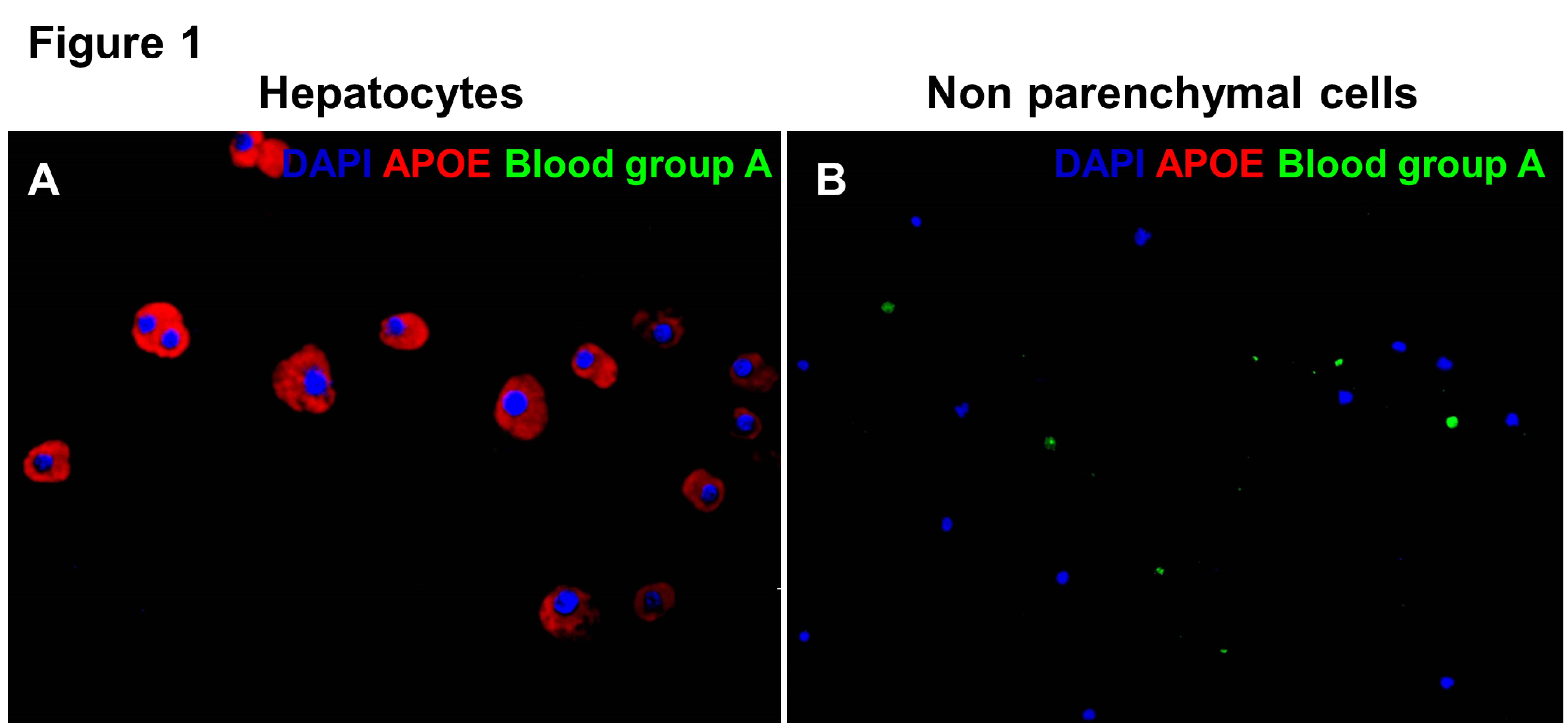Effect of the Isolation Procedure and Inflammatory Cytokines on Blood Group Antigen Expression on Human Hepatocytes in Preparation for Investigating ABO-Incompatible Hepatocyte Transplantation
Kazuaki Tokodai1, Makiko Kumagai-Braesch1, Ahmad Karadagi 1, Helene Johansson1, Carl Jorns1, Bo-Göran Ericzon1, Ewa Ellis1.
1Department of Clinical Science, Intervention and Technology, Karolinska Institutet, Stockholm, Sweden
Introduction: ABO blood group antigens in the liver are expressed mainly on endothelial cells or biliary cells, but not on hepatocytes. This suggests that ABO-incompatible hepatocyte transplantation is theoretically feasible. However, the effects of stress caused by isolation procedures and intraportal infusion procedures on ABO antigen expression require thorough investigation before ABO-incompatible hepatocyte transplantation can be implemented in clinical settings. The aim of this study was to investigate ABO antigen expression on isolated hepatocytes exposed to the stress of isolation procedures and inflammatory cytokines.
Materials and Methods: Human hepatocytes were isolated from liver tissue obtained from liver resection or deceased donor livers. Blood group A livers from six different donors were used. The expression of blood group antigens on cryopreserved human liver tissues and isolated hepatocyte smear specimens were examined by immunofluorescent staining. The isolated hepatocytes were incubated for four hours with or without a cytokine cocktail containing TNF-α, IL-1β, and IFN-γ, and the expression of blood group antigens was evaluated by flow cytometry.
Results: Blood group antigens were mainly expressed on vessels in the portal area. In hepatocyte smear specimens, isolated hepatocytes, which were stained with anti-apolipoprotein E antibody, did not express blood group A antigens (Figure 1A). In contrast, a subset of cells in smear specimens of non parenchymal liver cell stained positive for group A antigen (Figure 1B). In the flow cytometry analysis, the blood group A antigens were not displayed on isolated hepatocytes, even after incubation with the cytokine cocktail.
Discussion: Our study showed that blood group A antigens were not expressed on hepatocytes even after the isolation procedures and the incubation with cytokines. We believe that this finding is an important step toward removing the restriction of ABO matching in hepatocyte transplantation. The influence of small amounts of contaminated ABO-antigen-expressing cells, including red blood cells, requires further investigation, but considered to be much less important clinically.
Conclusion: Our results suggest that ABO-incompatible hepatocyte transplantation is a feasible therapeutic option, especially in patients who require urgent treatment with freshly isolated hepatocytes.
Stockholm county council, ALF Hepatocyte transplantation. .
